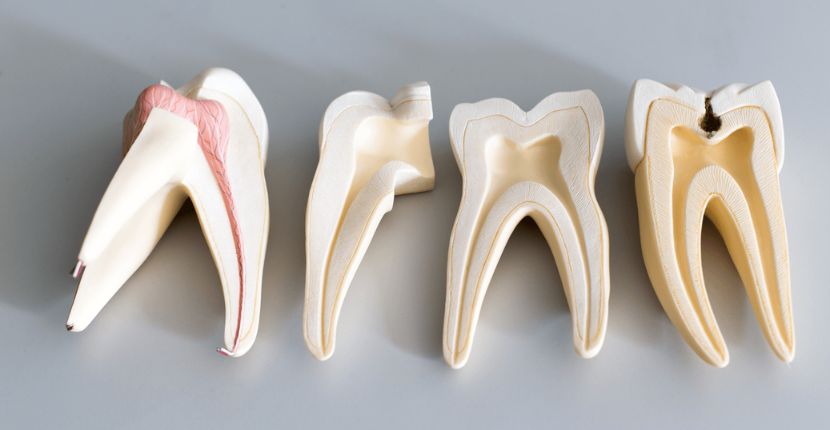10:00 AM to 8:30 PM (Mon - Sat)
10:00 AM to 2:00 PM (Sunday)
Root Canal Treatment - The Best Way To Save A Tooth

Natural teeth are meant to last a lifetime. Many years ago, diseased or injured teeth were frequently removed. The good news is that today that is not true. Root canal therapy can save a tooth.
Root canal treatment is a necessary procedure when the pulp of the tooth, composed of soft tissue inside the tooth that contains blood vessels, nerves and connective tissue, becomes inflamed or diseased and the dentist and patient want to save the tooth.
The need for root canal treatment can occur as the result of:
- A deep cavity
- Repeated dental procedures to the same tooth
- A cracked or broken tooth
This treatment is often indicated when the patient experiences:
- Dull pain in the tooth or area,
- Swelling that becomes increasingly uncomfortable,
- A throbbing pain,
- A small pimple or blister that doesn't go away over time,
- Or sometimes, there are no symptoms what so ever.
During this therapy, the dentist or endodontist, a dental specialist who does root canals, removes the diseased pulp. The pulp chamber and root canal(s) of the tooth are then cleaned and sealed.
If the infected pulp is not removed from the tooth, pain, swelling and infection can ensue and the tooth might have to be removed. Even if there is no pain, certain substances released by bacteria can damage the bone that anchors the tooth in the jaws. Without treatment, the tooth might become loose and have to be extracted.
There is a downside to losing a natural tooth. When one is lost and not replaced, the adjacent teeth may begin to shift from their normal positions. This can cause the teeth to become crooked and crowded. This makes eating and biting more difficult. The teeth are more likely to develop gum disease because they are more difficult to keep clean. Furthermore, the replacement of missing teeth by bridgework or implants is more costly than root canal treatment and requires work to be done on adjacent teeth. A natural tooth is generally preferred to an artificial one.
When a patient cares for their teeth and gums, the restored root canal treated tooth could last a lifetime with regular checkups. A tooth without the nerve can still develop gum disease and tooth decay. Most often the root canal treatment is a simple procedure with little or no discomfort. It can be finished in one to three visits.
When the treatment is finished, the dentist needs to restore the tooth so that it is strengthened to resist the biting forces of the mouth. This is frequently done with a post and simple restoration. If a simple restoration is not possible because of extensive loss of tooth structure, a crown is placed on the tooth.
While this may seem complicated, these are all routine dental procedures and can save your teeth and smile for a lifetime. And that is something to smile about.


